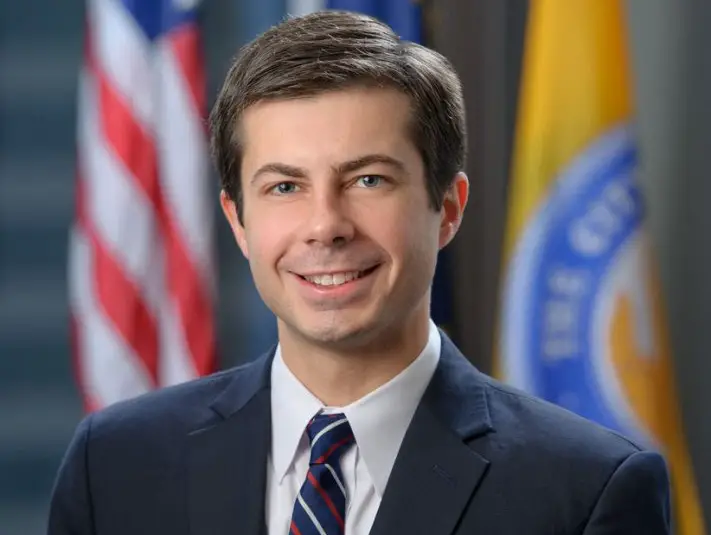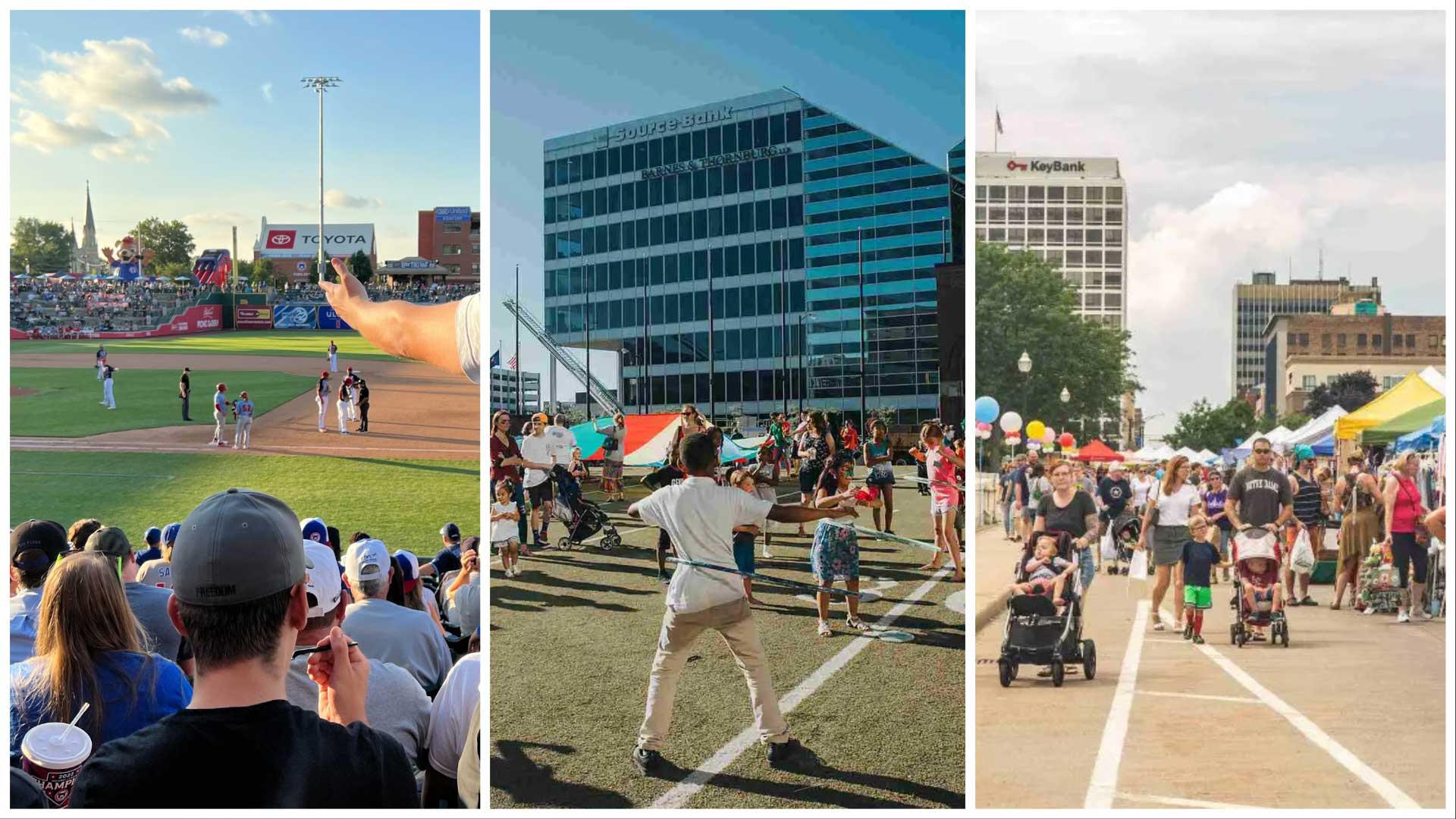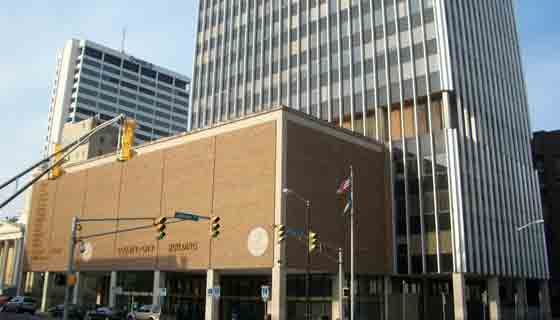South Bend Mayor Pete Buttigieg delivered a speech this morning at the 29th Annual MLK Day Breakfast in downtown. We have the mayor’s full speech, as prepared for delivery, below:
First, I want to thank and congratulate the committee for yet another successful breakfast honoring Dr. King. We are joined today by Lt. Governor Sue Ellsperman, and this occasion is a great example for her to see what our community is about.
South Bend is proud of the many ways in which we honor Dr. King. We have this breakfast and today’s march. We have Dr. Martin Luther King Drive, the Martin Luther King Center on our West Side, and the activities of the Martin Luther King Senior Men’s Club. A point of pride for this administration is that two years ago, we began marking this day as an official City holiday for the first time. Indeed, the only person that I can think of who is commemorated by name in more places and more ways in this community than Dr. King, is Saint Joseph himself.
We do well to honor the life of Dr. King and the history of his struggle. But the spirit of this day is only not about history. It is about the present and above all the future. Dr. King’s legacy is a burning reminder of unfinished business. It was Dr. King who said that “injustice anywhere is a threat to justice everywhere.” To be true to what Dr. King represents, we must face the reality that injustice and inequality persist in our community, and ask what can be done about it.
I am mindful of the context in which we gather this morning. For months since the unrest that began in Ferguson, Missouri, this community and every diverse American community has been wrestling with the role of race in the criminal justice system.
And also, for three years, this community has been affected by deep controversy caused by rumors about secretly recorded private conversations of a number of police officers. Last week a federal judge ruled that most of those conversations cannot be listened to without breaking the law, meaning that the public—and for that matter I myself—may be forever in the dark about what most of those recordings might or might not reveal about attitudes among the people concerned.
No one can regard that as a clean-cut, satisfying conclusion. In the absence of lawfully obtained information, we are left to speculate about the underlying facts, with some inclined to offer the benefit of the doubt and others inclined to imagine the worst.
These issues arouse such heartache that it is tempting to try to cope by ignoring them, avoiding them, hoping everyone will forget about the whole thing some day. But that would only work if these controversies were limited to how they appear on the surface—arguments about T-shirts, about remote events in other states, about cassette tapes. So long as we neglect the root cause of this pain and controversy, we are doing nothing but deferring still greater pain and divisiveness until the next time this deep wound is touched by some other event in the future.
Deep down, we know this is not about T-shirts or about tapes or even about one violent encounter in Missouri or New York. This is about how we move forward together in a diverse community, knowing we are not yet free of the legacy of centuries of race as a source of division and injustice.
Who can look at the realities of race in America and feel satisfied? Right now, one in three black men can expect to go to prison during his lifetime. African-Americans are three times more likely to live in poverty than white Americans. A black person caught with marijuana is almost four times more likely to be arrested than a white person. No matter how you allocate the blame for that circumstance, it is acute and it is unacceptable.
The question is not whether we must deal with this, but how. One thing we know is that racial bias and clear cases of racism must be confronted and fought back at every turn. Explicit racism still rears its ugly head more often than we would like to admit—look no further than comment sections on social media.
But today I want to suggest that the time has come for us to realize that there is more to confronting prejudice than dealing with the small number of people who express openly bigoted attitudes. Naked, malicious bias may still exist, but it is the tip of the iceberg when it comes to understanding the prejudices that hold us short of a truly equal society.
Not long ago there was a social science experiment. People were very briefly shown a photograph of a white man with a knife fighting an unarmed African-American man. When asked about the image later on, most people misremember it, and wrongly say the black person was the one holding the knife.
Another experiment sent out 5,000 fictional resumes to apply for jobs. They were identical, except one thing: some of them had Anglo-sounding names, and others had African-American sounding names. The Anglo-sounding applicants were 50 percent more likely to get called for an interview.
Perhaps the most important thing that emerged in this research is that many of the people who exhibited the bias did not realize it was happening. In fact, even African-American test subjects sometimes exhibited the same bias. This points to a system-wide problem that one expert has called “racism without racists.” The truth is that many people who do not think of themselves as racist, who abhor racism in principle, who may have never even had a consciously racist thought, are nevertheless actively contributing to racially disparate outcomes. That could be any of us sitting in this room.
We all have images seared into our memory of the struggles of people like Dr. King and Medgar Evars and John Lewis, beaten back with fire hoses and truncheons by defenders of a segregated order. But today we know that the struggle between one set of people and another set of people is not the only kind of struggle. There is another, even deeper one—the struggle within us, each of us coming to terms with our own attitudes.
This is not only about race—this is about all the ways in which we consciously and unconsciously judge each other by anything other than the content of our character. Biases exist in all of us, and all of us must seek help in peering into our own blind spots so that our choices truly match our values.
You will notice that none of what I am saying is inconsistent with the importance of respecting police officers and public safety professionals. These individuals put their lives on the line every day to make our community safer. Somehow the national debate has steered us into thinking that respecting law and law enforcement is incompatible with vigorously fighting any kind of disparate treatment based on race.
In truth, it is all right to believe that we have a problem with the role of race in our society and justice system, and at the same time respect and support the work done by police officers at great personal risk. In fact, it is not only possible, it is necessary. Necessary to find a way to be pro-minority, pro-equality, and pro-police. We all want justice, we all want equality, and we all want safety. And safety has no color.
South Bend’s administration tries to live by these values — justice, equality, and safety — and make good on our commitment to diversity. We are proud of the fact that for the first time, the City’s top lawyer is African-American. I am proud of the fact that my own office has a staff in which more than a third of the team is African-American, that our office includes Latino staff and staff of diverse orientations, and a majority of the staff are women. We’re proud of the high and increasing diversity in many of our city’s most important boards and commissions from the Board of Safety to the Redevelopment Authority.
We’re proud of the Group Violence Intervention, a profound shift in the way we address gun violence, drawing on not only law enforcement but also participation from throughout the community, from hospitals to minority pastors, from universities to organizations like Goodwill. Together we have contributed to a nearly 40 percent reduction in persons shot in our city. The diverse group of people working on the GVI is saving lives, real lives of real people somewhere in this city, mostly minority lives. And we have to keep up this work for the simple reason that all lives matter.
Yet if we have much to be proud of, we know that we have much work to do as well. We do not have a city workforce, be it in uniform or in office jobs, that fully reflects the community it serves. We are not satisfied, and that’s why we introduced new recruiting incentives for police in the 2015 budget passed by the Common Council. And that’s why I am announcing today that I have decided to engage professional services to support the city in an initiative to boost our recruiting of qualified minority applicants to city positions, particularly in public safety, and to identify and tear down barriers that negatively affect our workforce diversity.
But that isn’t just up to the administration, it’s up to all of us. If you care about things like diversity on the force, we need your help. We need everyone in this room to view himself or herself as a recruiter. Help us reach out to applicants who maybe never pictured themselves wearing a uniform in South Bend, serving their community, saving lives and building trust.
It’s just one example of the responsibility that the leaders in this room share to move our community toward healing and face the uncomfortable conversations that will bring the darkest facts of our social and economic life into the light to be fixed. Every one of us must help if we are to acknowledge and outgrow the racial disparities we have inherited over the generations. Every one of us must strive to bring people together amid the many forces that seek to drive us apart.
No community in America has yet truly achieved Dr. King’s vision of full equality and total justice. But we are just the kind of community that has what it takes to make greater progress than most. We have the people, the diversity, the values, and the hope for the future that it takes to wrestle with these issues and come out stronger. Dr. King said that the arc of the moral universe is long, but it bends towards justice. As our community prepares to celebrate its 150th anniversary, let us bend our own city’s arc ever more in the direction of equal opportunity, mutual respect, shared safety, liberty and justice for all.











